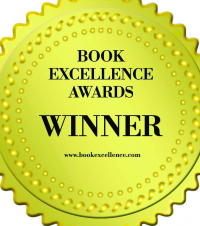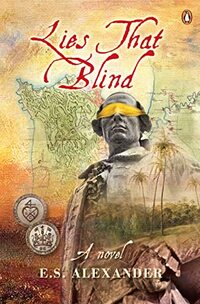What childhood memory has had the best impact on you?
This is a story my mother told me that had a big impact on me with respect to becoming an author and storyteller. My parents had driven my brothers and I down to Portsmouth (UK) to spend some time with an uncle and his family. Between us there was something like half a dozen siblings and cousins who were sent outside to play, in the charge of a teenage aunt. I must have been five or six years old at the time. My uncle lived on one of those sprawling new estates where all the houses and streets look exactly the same. At some point I decided to break free from the rest of the group and went wandering off on my own (this was back in the late 1950s— arguably a less dangerous time).. Several hours later I showed up at my uncle’s house having had my adventure. When my mother asked me how I had found my way home, I told her that I had dropped little pebbles along the route and just followed them back, inspired by the tale of Hansel and Gretel!
How did you begin writing your first story? Did it ever get published?
I’ve been writing stories for so long, it’s hard to remember my first one. When I was 16 I wrote a play called Osiris, based on the Egyptian myth, which was performed by a drama society at my school. A few years later, as a young adult, I penned some short stories featuring “The Dover Street Sleuth,” Dixon Hawke that were published in a D.C. Thomson newspaper in Scotland, where I was born.
How does being a journalist helps you in writing intriguing historical fiction novels?
Good journalists are curious, indefatigable researchers. Because my historical novel, Lies That Blind, is inspired by true events, I spent years researching Captain Francis Light’s letters, as well as books written shortly after his time period. I wanted to get as accurate a feel as possible for Malayan culture and the workings of the East India Company, Light’s paymasters. One of things I’m most grateful for as a long-time features journalist, is the ability to question everything. History, as it was once famously described, is written by the victors. A lot of it is propaganda, as I discovered while researching Light’s story!
Being a global nomad, visiting which city/country brought you peace?
Last year I spent nine months touring the UK and Europe. Ironically, I had never visited Cambridge, England but spent a wonderful month there. I came to realize that the city is probably my favourite place to be as it has everything I could wish for: history, beautiful buildings, an academic sensibility because of all the universities situated there, a glorious river and country walks, fabulous bookstores that I can immerse myself in for hours, great pub food, easy access to London … the list goes on. I felt greater contentment there than I have in most other places I’ve visited.
How did you begin writing your first novel, Lies that Blind?
I had been living on Penang (an island off the west coast of Malaysia) for a year or so when I had coffee with a good friend who is a fellow author, and a publisher. I’d always wanted to write a novel, to cap off my 30+ years as a journalist and non-fiction author—but couldn’t come up with an idea that gripped me. My friend, Keith, told me a story about Captain Francis Light’s tenuous hold as superintendent of Penang, which he had been credited with “founding” on behalf of the East India Company in the late 18th century. It seemed that the legal owner of the island, a Malay sultan, had been misled by Light as to what he was getting out of the deal. This culminated in the sultan gathering tens of thousands of pirates and mercenaries to help him take his island back. That aspect of Light’s character—the ambitious deceiver—hadn’t really been explored in the subsequent stories about him. That’s when I knew I wanted to write Lies That Blind, helped by the fact that I lived on Penang for five years while it was completed and published by Penguin Random House SEA.
How did you write a satisfying end to the first book, Lies that Blind?
I based my decision on how to end Lies That Blind by thinking through what kinds of satisfying endings I like to read. I always love unexpected twists at the end of a book. So far, everyone who has read and reviewed my novel says the ending was unexpected – although there were plenty of clues peppered throughout the story they had overlooked.
Who inspired the character of Jim Lloyd?
Early drafts of my novel had Francis Light as the main character. But the more I wrote with him at the centre of things, the more stymied I became.While doing some online research I came across a wonderful 1758 essay by Dr Samuel Johnson entitled Of The Duty of a Journalist in which he outlines how journalists of the day rushed to write what we now call “fake news” and transmit information to a gullible public that had no basis in fact. That gave me the idea of having my protagonist be an ambitious young journalist who thinks that by telling Francis Light’s story—the fake one!—it will benefit the careers of both men.
Is there anything from the past you wish you could do differently? What is it about?
No. As the French song goes, “Je ne regrette rien.”
What kind of impression do you hope your book will leave?
I think we’re all familiar with the saying: ‘Those who do not learn history are doomed to repeat it.’ Even though mine is a novel, Lies That Blind is inspired by true events from the late 18th century that mirror so much of what keeps happening over and over, even today. In my story this ranges from the “too-big-to-fail” shenanigans of the East India Company whose bad management and corruption required the British parliament to step in and bail it out, to the propensity of powerful people to deceive others as well as themselves as to who they really are, and the reliance on propaganda to obscure historical facts—or, at least, a different way of looking at what happened in the past.
In addition to agreeing with how Kirkus Reviews described my novel as, “A rich story of intrigue and deception with some engaging twists and turns,” I hope Lies That Blind gives readers the opportunity to reflect on how what happened in Captain Francis Light’s time is not all that different to what’s going on in business, politics, and society today.
What are some examples of things that made you think "Wow, perfection actually exists"?
I don’t believe perfection exists – which to me is a good thing because there’s always something more to strive for. I think I’ve always believed that but it was drummed into me during graduate school when I was writing my dissertation. As my thesis advisor was fond of saying, my work didn’t have to be perfect, it just had to get done. I think that’s the balance every writer has to strike: between completing their novel or non-fiction book and being satisfied enough to put it out into the world.
What are you reading these days? How is it influential?
I read so many novels – mostly murder mysteries and police procedurals, which may come in handy one day. But as I embark on plotting my second novel, I’m working my way through a non-fiction book: Save The Cat Writes A Novel by Jessica Brody. I heard her talk on the Reedsy platform and thought she was excellent. This novel-writing guide has been influential to me in two ways: First, to remind me that although I’ve been a professional writer and author for almost thirty years, there is always more to learn. And secondly, because most of my books are non-fiction I need to deepen my understanding about the various elements of fictional storytelling.
Which is the next book you are writing? When is it due for release?
I’m still in the plotting stage of my next novel. I’m very excited since I see it as an upside-down cross between the film Harold & Maude (the 1971 cult dark comedy) and Muriel Spark’s novel, The Prime of Miss Jean Brodie. I don’t know yet when I’ll have it finished or even if I’ll be able to secure an agent and publisher…that’s all part of the fun, too.
When did you join AllAuthor? How has your experience been?
I joined All Author in mid-December 2022, only becoming aware of the platform because of a Tweet someone posted on Twitter. Lies That Blind was then selected as one of the books to participate in the Cover of the Month contest for January 2023, which I won! That was a great experience since it encouraged me to galvanise my community and realise it was bigger than I’d originally thought. Although I did end up joking to friends and family afterwards that it had put me off ever running for public office; there’s such a lot of work involved in persuading people to vote for me!














